Educators Are Figuring Out New Ways of Working, Living and Learning Aligned to Health, Sustainability and the Planet.
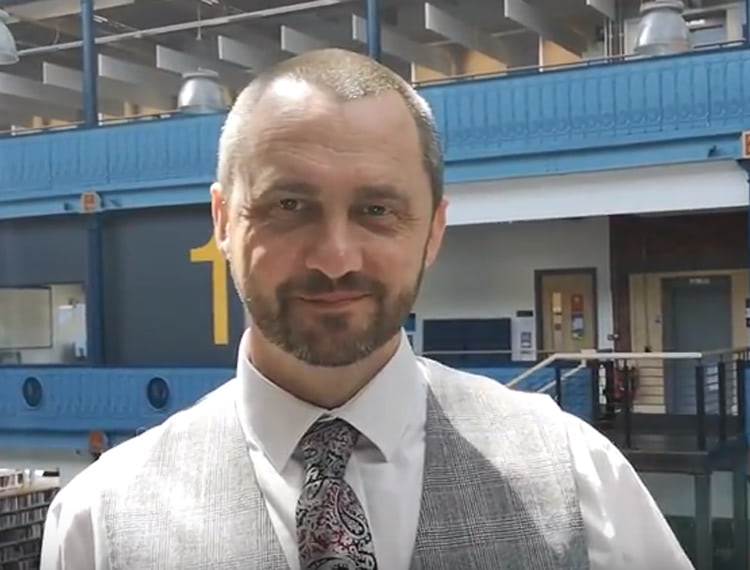
The Stars Have Never Seemed So Bright
I was recently listening to a leader describe how they perceived that more innovation has happened in five weeks than in five years. Feels about right.
The world has found itself immersed in the virtual age not as a result of a deliberate strategy but from necessity and now it is a matter of survival, arguably literally in some cases. Necessity really can accelerate innovation it turns out.
In recent weeks millions of people have turned to online video meetings, some getting zoom-bombed in the process whilst others grapple with cats on keyboards or toddlers not appreciating the need to cover the matters arising.
Google recently reported they were adding over two million Google Meet users a day spending more than two billion minutes a day on the platform. At the same time emerging factors around digital poverty, a long overlooked issue, has been painfully highlighted by people with no access to appropriate learning and working technologies or spaces.
Anyone sharing a modest broadband connection with teenagers will appreciate the critical utility that effective broadband is.
Whilst most of us will be figuring out what this all means for our lives, businesses, jobs and so on, many have noticed positive glimpses of a smarter world. A cleaner, more efficient and sustainable way of life that enhances wellbeing at the same time as supporting the planet we live on.
The global pandemic is actually a tale of two crises, one viral and one about climate
Our global adoption of cloud technologies is delivering the biggest environmental benefit in living memory and many are starting to hope that when it comes to working smarter, there’s no going back. For those that try to return to the old normal, it may be a difficult journey.

In his book ‘Epidemics and Society: From the Black Death to the Present” Professor Frank M Snowden of Yale University discusses how social structures in every society create their own specific vulnerabilities.
Reflecting on the challenges of the current Coronavirus pandemic, for many those vulnerabilities could have clearly been mitigated through effective recognition of living in the digital age, making more effective use of technology combined with the training to use it effectively.
Millions of people are realising that polluting the air we breathe to sit in a traffic jam in a car for hours of their lives they won’t get back to arrive in a place where they use technology connected to the internet is perhaps not the smartest way to spend time. Others paying for large expensive estates are starting to wonder why when their teams can work more efficiently from home.
My contention is that we have to get smarter, not least because in planetary terms we are not actually that important. The universe has been around for 13 billion years, earth for 5 billion. As David Christian points out in his ‘Big History’ lecture series if you condense these billions into 13 years, then our species appeared 53 minutes ago.
Our survival is not critical to the planet, it’s the other way around. Without wishing to downplay the suffering and cost of the virus, the pandemic may just yet turn out to be the best thing to have happened in living memory because millions of people living in lockdown have had time to slow down for a while and reflect.
People are spending more time with loved ones, or alone, rushing around less and carbon emissions have plummeted. We have had a glimpse of a different way of living, working and learning. The natural world equivalent to when dealing with a technology problem we switch it off and on again.
When we reboot our lives, do want to use the old software or install an update that makes life better?
In an essay published recently in The Point magazine Justin EH Smith a Professor at the University of Paris reflecting on the pandemic commented that ‘there is liberation in this suspension of more or less everything’. Just as the air is getting cleaner for a while, our world of learning, working and living is having a moment of clarity to reflect.
In recent weeks I have had the privilege of listening to educators from across the UK sharing their experiences, challenges, insights, fears and hopes for the future and among many emergent themes I heard many people talk about working smarter and more sustainably, noting clearer skies and a sense of enhanced wellbeing.
For late to the party eco-warriors these are fascinating times and it feels as though we are living through something of an economic, social and technological revolution without a defined cause and with uncertain outcomes but one that has the potential to create something better.
Beyond the clouds it’s clear skies ahead
Images from NASA showing relative pollution levels in the Earth’s atmosphere have been fascinating to observe lately, showing the unprecedented scale of disruption to everyday life and the impact on global emissions.
Coronavirus set to cause biggest emissions fall since second world war https://t.co/ZtCixUWBL2 pic.twitter.com/kLlbKJl8VF
— New Scientist (@newscientist) May 19, 2020
Between February and March 2020 it has been estimated that emissions in China dropped by 18% avoiding some 250 million tonnes of carbon pollution (to put that into context that is more than half of the total UK annual carbon emissions).
Studies by Lauri Myllyvirta at the University of Helsinki’s Centre for Research on Energy and Clean Air placed the figure higher at nearly 25% noting that the air was cleared of emissions almost overnight.
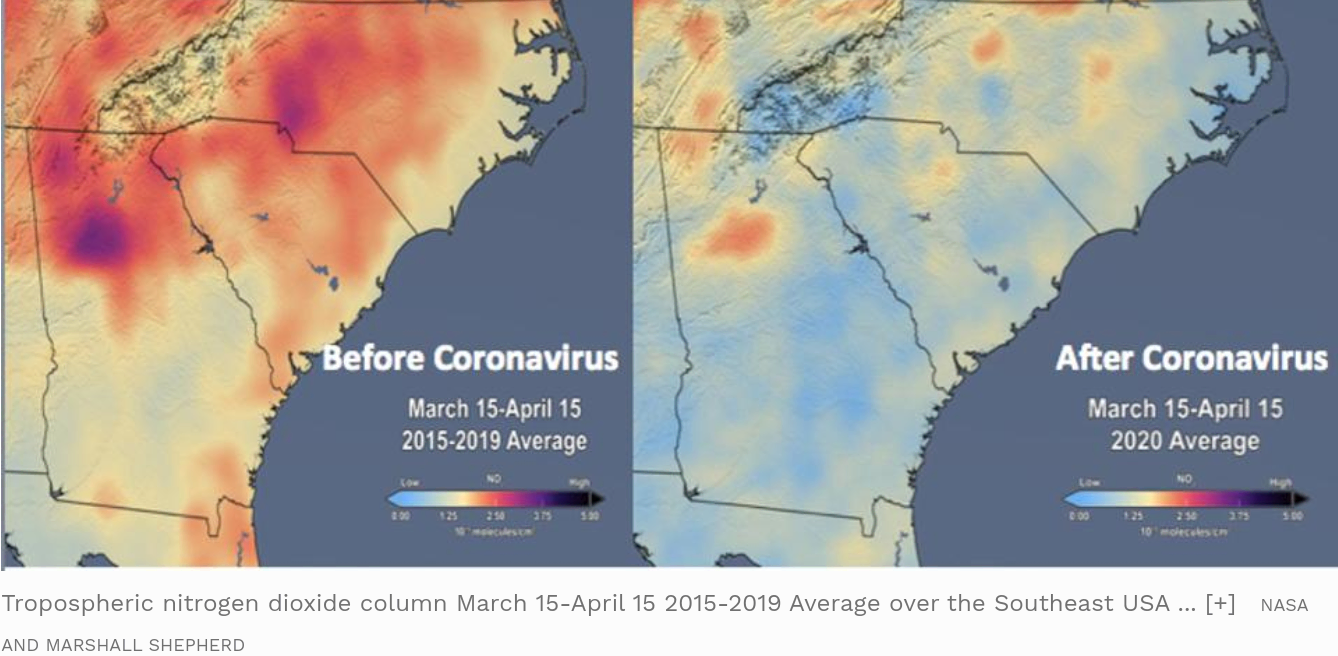
Across the EU it has been a similar story
It seems a virus has achieved more when it comes to the climate agenda than any Government could in decades. Just as with the global coronavirus pandemic our opinions on lockdowns and climate change are both optional, but our participation in them is not.
When it comes to the sustainability agenda, educators are now experiencing the possibilities of new ways of working in a more balanced and in the future, likely a more blended way.
There is no choice. Many learners, parents and carers will have a multitude of factors to manage when facing a pandemic for which there is no current vaccine meaning that for many their risk profile is far higher than an average ‘normal’ for a healthy person with no wider health issues.
This is not a small group of people. Combine this with the limiting factors on space utilisation from subjective interpretations of social distancing and it’s clear a radical rethink of people, processes and infrastructure isn’t optional now.
Perhaps it should never have been?
It won’t suit everyone, but there’s no going back and surely a fundamental aspect of our education system should be to provide people with the skills and knowledge to live more sustainably in the context of health, wellbeing and happiness. We have seen and experienced a cleaner and more sustainable world and how things could be.
We all have a choice in what happens next
One of my favourite tweets regarding climate change and how we live today said we’re at the exact point as when Wile E Coyote runs off the cliff but hasn’t looked down yet. Indeed if we don’t change our ways, we are.
The debate has moved from whether people believe in climate change to whether people understand it, and whilst many won’t understand the details of the science underpinning climate change our world of education has a key role to play in providing people with a picture of future possibilities that don’t contribute further to climate change disaster and we now all know we can radically shift from doing things the way they were to new, often smarter ways.
The pandemic has forced us all to radically change our way of life
Some things have been harder, but many things have been smarter. I’ve said at numerous conferences that when looking at travel patterns you’re not stuck in traffic, you are traffic, and during the pandemic millions of people have started to question whether sitting in traffic polluting the air we breathe is actually either essential or a very smart thing to do.
Managers have had to challenge their concepts of work with those believing in presenteeism having a really, really bad year. Those organisations with large estates have begun to question it’s future suitability in a world where people may travel differently, work differently and learn differently. There are opportunities in all of this.
On the 26th February 2019 the UK reported the warmest Winter day in history. The UK was warmer in February than Malibu, Barcelona or Crete. On the one hand an isolated example but when seen as part of a wider trend it’s clear that Barack Obama isn’t wrong to say “We are the first generation to feel the effects of climate change and the last generation who can do something about it”.
For me, sustainability is now a core aspect of education in preparing people to be ready for the future world of industry where fresh thinking is essential to accelerate innovation in products, services and solutions.
Covid19 arrived and our world of education has moved online to greater levels than at any point in history
Many were already there whilst some had resisted the inevitable impact of technology but faced with a lockdown had no choice but to figure out a way to use it differently to ensure continuity of learning.
Enabling a better baseline level of digital literacy consistently across our world of educators is clearly now more critical than ever irrespective of what happens with the Coronavirus. CPD day events done to people and largely focused on compliance won’t cut it for this new world.
Educators need access to industry relevant digital training that enables agile thinking. Those who have understood this over recent years have transitioned to new ways of learning and working during the pandemic a whole lot better than those who didn’t.
Those without effective digital learning strategies when faced with the inevitable have tried their best to learn new forms of pedagogical practice and technologies in weeks and under challenging circumstances, learning the hard way what JRR Tolkien meant when he said “The wide world is all about you; you can fence yourselves in, but you cannot forever fence it out”.
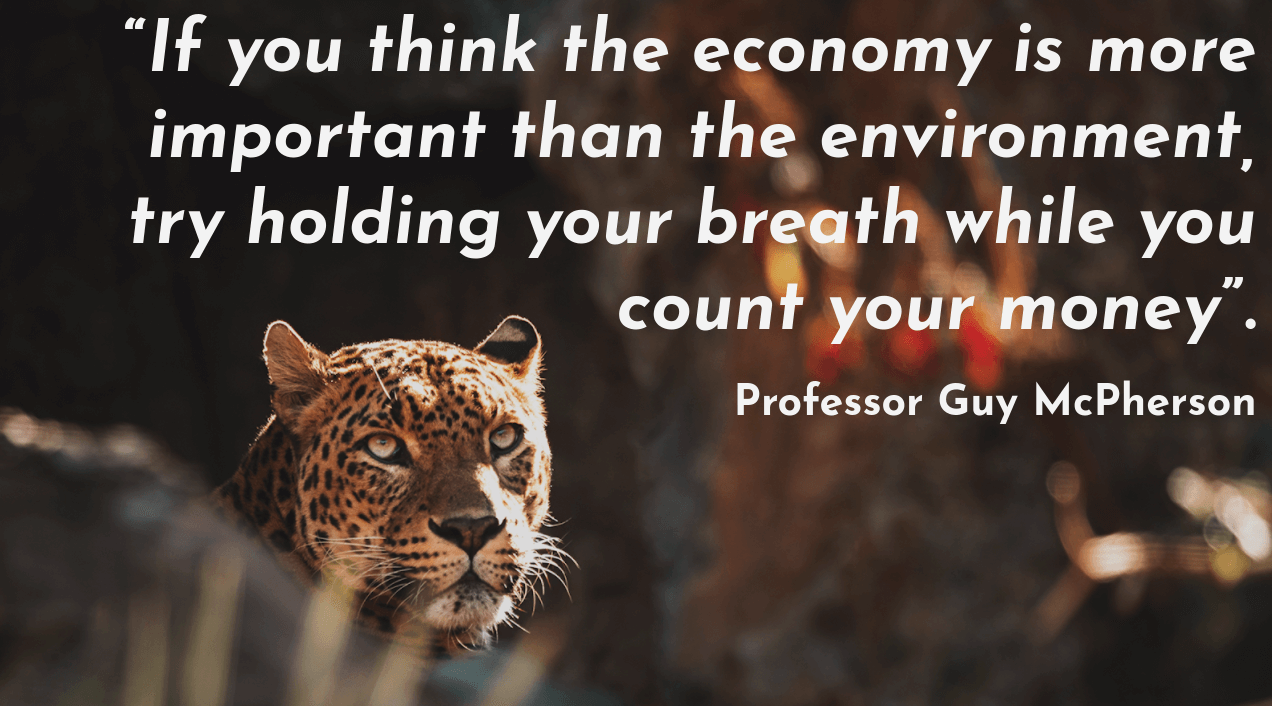
It’s not possible to un-invent the internet, and it’s as essential to education now as classrooms were in previous decades.
The arrival of the Coronavirus pandemic has exposed those more capable of adapting from those less so. As one educator put it to me, our campus is closed but learning remains open.
Other educators have not had systems, processes and people development strategies in place to enable continuity of learning and for those the pandemic has been especially challenging.
My contention is that irrespective of the pandemic, we need to work smarter anyway. Innovation should be business as usual, not only when essential.
A process of continual learning, which also means constant change, is critical to our collective future prosperity.
I heard someone say recently that once people moved to find jobs, now jobs move to find people.
This is true and we have a collective responsibility to prepare people to make the most of this open, digitally connected world where technology has brought about the end of distance.
The concept of the conventional office space is going the same way as the conventional high street shop
Teaching and learning spaces are no different. Technology is creating an unprecedented process of disintermediation (thanks to David Price OBE and his book OPEN for introducing me to that concept) and it means that for many students they will have realised they can connect directly to learning without the need of a bus. Or taxi. Or the cost of either.
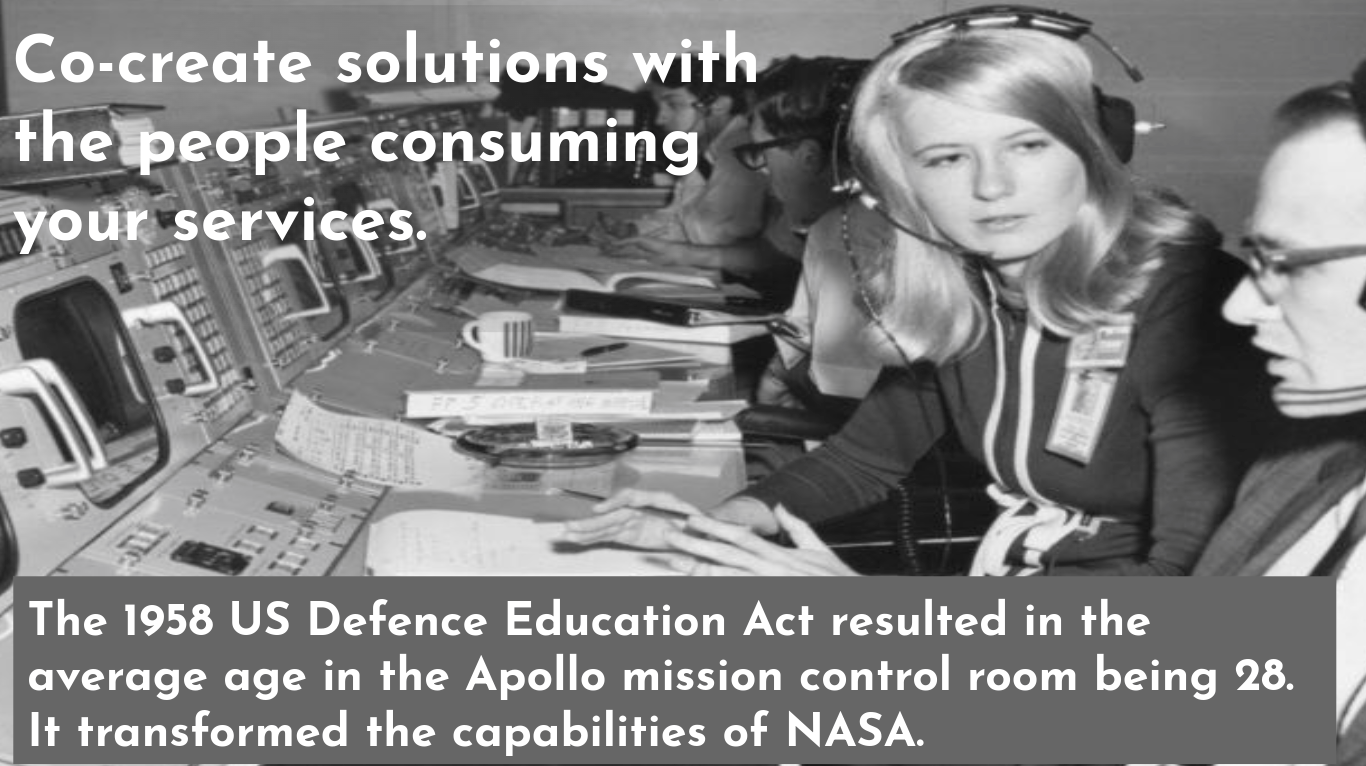
For some it might be entirely, for others partly, and for some not at all. This is blended learning the next chapter. Multiple mixed mode delivery options tailored to personal circumstances and preferred learning styles that enable true differentiation that puts learning at the core.
For educators who always believed that it should be learning driven, as opposed to legacy system led, these are interesting times full of new possibilities.
I once heard a marketing director reporting with pride to the Board of a well known soft drinks company that they had over 90% of their total target market. The CEO responded by saying his data suggested it was less than 2%. The reason for the difference? The vision of the CEO wasn’t based on comparators in the same sector, it was the total amount of liquid consumed by the human race on a given day.I was recently listening to a group of students describe how they would love to co-create their learning spaces in the college they attend. They had the same expectations of the learning process itself. Too often ‘we’ve always done it this way’ impacts on our thinking about re-imagining alternative ways of learning, working and living.
It was a reminder that when re-imagining education, we should be bold in rethinking the entire process and not start with our thinking constrained by campuses and processes as they are now and how do we improve those things? Maybe those things should not exist at all?
High street shops won’t survive unless they adapt radically to the world that now surrounds them. They cannot forever fence the wider world out with a barrier of nostalgia and hope and a desire to go back to how things were.
Education is no different. You have a campus? So what? Why would you expect anyone to travel to it when they don’t have to or don’t want to or in the current climate if it poses a potential risk to health?
There may be answers to those challenges, but an essential articulation of the why to those challenges will be essential.
Those with the courage to do things differently will prosper
Since the pandemic hit and many countries went into various forms of lockdown global emissions plummeted, at least for a while. It’s likely you heard friends and family talking about the clearer air and skies, especially at night as people stopped to stare a little more at the night sky noticing the clarity of the stars.
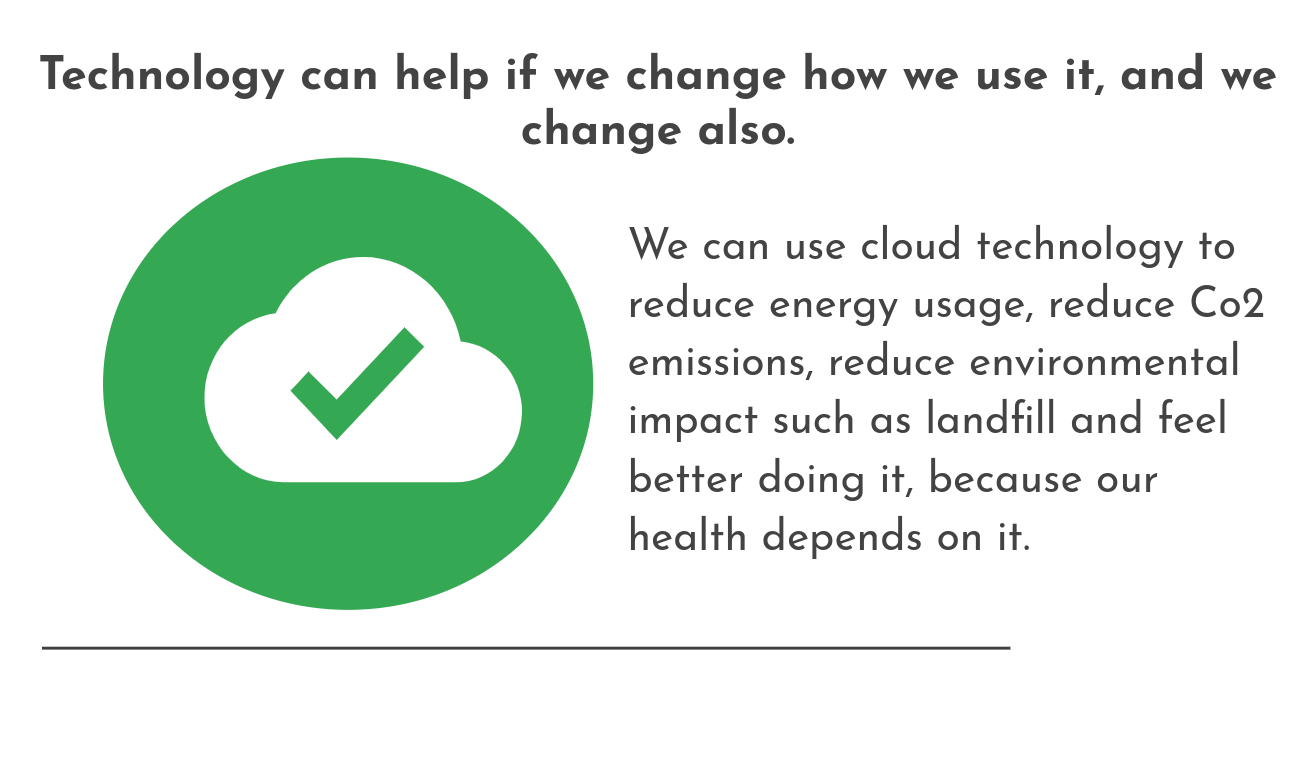
Whilst transitioning to working and learning from home won’t be an option for everyone, it has proven to be an option for a very big segment of society.
There are both good and bad impacts emerging from this but my sense is that the positives vastly outweigh the negatives as people spend less time stuck in traffic, or on a number of unproductive processes.
I have heard many senior leaders comment that online meetings are shorter and more focused.
Hands up anyone who wants longer meetings? No? Anyone? Thought not.
As the world of education moved to online meetings and lessons so it moved to cloud computing also, along with all of the wider benefits it brings.
Cloud based servers, whilst private and secure to the end user, are a shared resource in terms of their structure meaning the cloud computing data centre is operating at optimum efficiency. The kind of efficiency is not possible to achieve with on-premise servers on campus.
Research funded by Google and carried out by Lawrence Berkeley National Laboratory in collaboration with Northwestern University demonstrated that transitioning frequently used on premise applications to the cloud cut energy consumption by 87%.
Imagine cutting your energy bill by 87% and you start to appreciate just some of the potential of new ways of working and this is happening almost accidentally as a consequence of the pandemic.
For leaders the pandemic has forced the opportunity to look at people, processes and technology in new ways. In this context some of the questions for leaders in education include:
- Do we have a solid understanding of the digital competencies of our teams?
- Do our HR policies reflect progressive practice in the digital age?
- Do we have a strategic workforce development strategy?
- Are our processes administratively driven, or strategy led?
- How might our ways of working evolve to better align to more sustainable practice?
- How might we use technology to better support the health and wellbeing of our communities?
- What are the environmental and health credentials of the technologies we deploy and use?
- Have we mandated a cloud first approach to systems, processes and infrastructure?
- Are we equipped to engage, enrich and inspire learning in the digital age?
The good news for educators is that cloud technology is good for both the planet and the budget
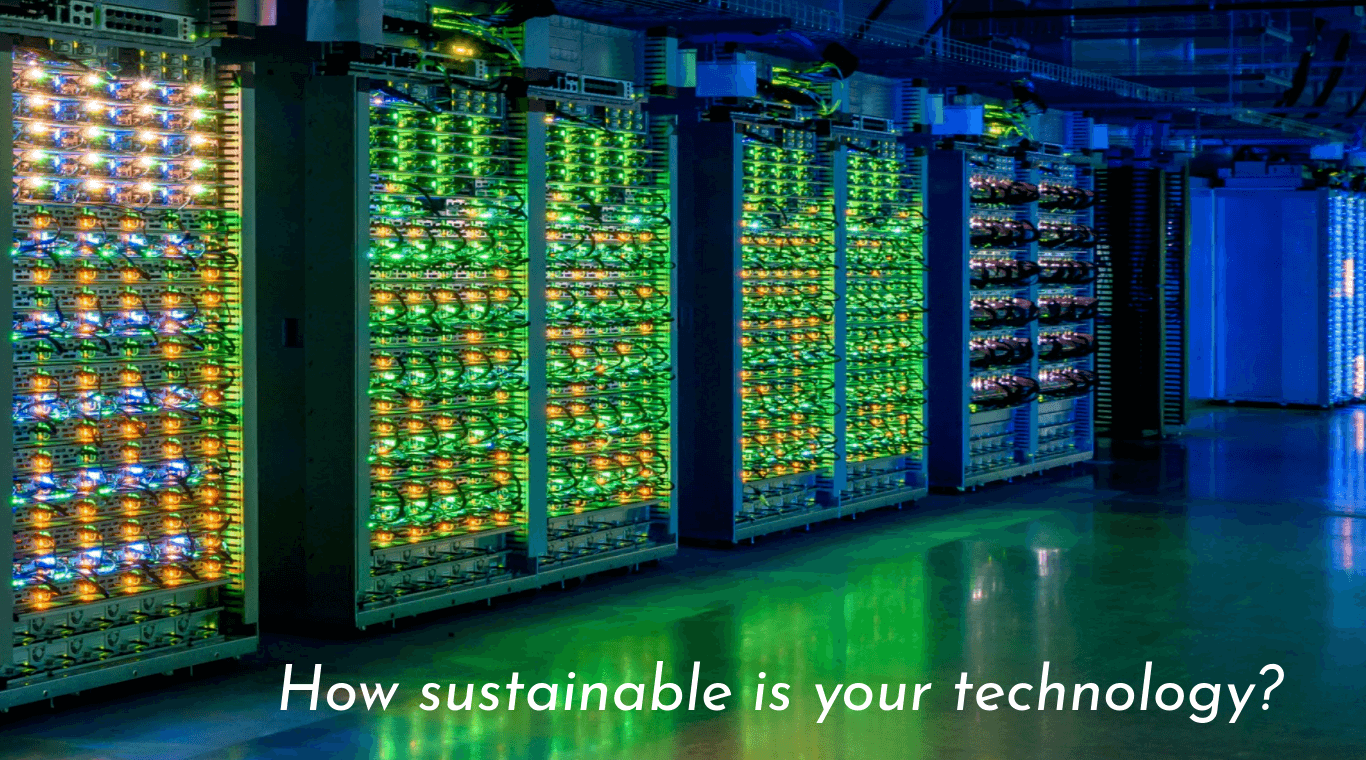
Educators can both afford cloud technology and can’t afford not to use it.
Some of the benefits of cloud technology include:
- Full utilisation – computing operating at optimum efficiency.
- Lower power costs / energy consumption.
- Lower operational costs.
- Lower capital costs (servers/firewalls etc).
- Agility. Ability to capitalise on new opportunities faster.
Using cloud technology and cloud ready devices like chromebooks delivers numerous benefits to educators. As the Coronavirus pandemic has developed I have seen numerous schools, colleges and universities rapidly transition to new ways of working using cloud computing that enables people to work and live smarter.
For many there is no need to travel. There is less paper usage. There is less recycling impacting negatively on landfill. There is less energy consumption, less wastage and less cost and less workloads as people gain time they didn’t know they could have. Schools and colleges that had provided students with chromebooks have been able to keep learning through Google Classroom and similar tools without interruption.
It’s different, and there’s no perfect technology for everyone but it presents new challenges and opportunities that enable innovation in teaching and learning.
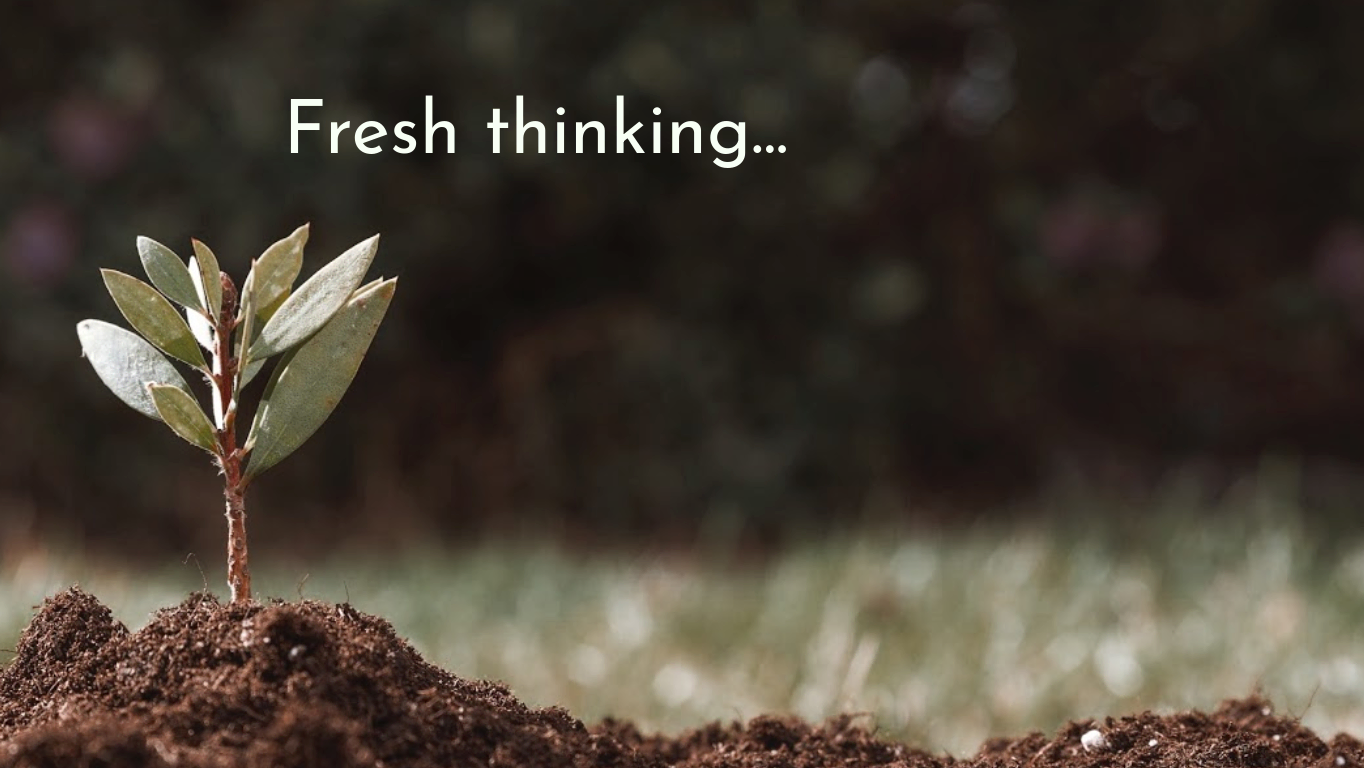
I once had the privilege to meet Dame Ellen MacArthur to hear about the work of the Ellen MacArthur Foundation in regard to the circular economy. Making things to be reused and thereby strategically reducing waste.
Our approach to technology in education can do the same as we figure out new ways of doing things. Chromebooks are a prime example of this. They last several years longer than a typical traditional laptop, so the impact on landfill is strategically reduced and they also contain far less harmful components.
This matters because global demand for resources is running beyond what the planet we are on can provide. Clearly it won’t end well unless we change.
The scale of change that has happened within weeks of the Covid19 pandemic has demonstrated we can change at the scale required if we decide to.
When used wisely technology can help us to both manage a threat such as that posed by a pandemic whilst also mitigate our negative impact on the planet we depend on.
Looking ahead to just the near term future I find it hard to imagine that people who have experienced a better way of living, learning and working will be easily willing to revert to less smarter ways of doing this.
We have the technologies to work and learn in a mobile, untethered efficient way that supports our health and collective wealth. It’s one thing to not know how things could be, quite another to un-imagine them having experienced it.
Looking at the unprecedented challenges presented by 2020 so far, I see many examples of what David Price OBE might refer to as the power of mass collaborative ingenuity as educators connect to others across the world facing similar challenges to work together to try to figure it out.
Whilst the Covid19 story is far from finished, the collective ingenuity of the education sector has been an exemplar of what can be achieved through people-enabled innovation from the practitioner up, rather than the corporation down. These lessons now need to be shared across the sector so everyone can live and learn smarter.
Australian politician Bob Brown once said the future will be green or not at all
The word green could be swapped to smarter with the same message applying, whether it’s in the context of climate change, pandemics or wider challenges we collectively face.
Considering the current crisis pandemics will come and go, and come back again, but if we learn the lessons from those shining brightest in education during the darkest of times, I have a feeling that our world will emerge smarter, more sustainable, healthier and a hell of a lot happier.
So unless normal was brilliant, let’s avoid a return to normal, and strive to create something better. As for the new challenges that the accompanying changes of a new normal and business as unusual will bring?
Well as David Price OBE would likely argue, we’ll figure it out. Through the collective ingenuity of people, indeed I believe we will and it’s the job of leaders to surround themselves with bright people to reimagine learning in the digital age, and enable them to do it.
Jamie E Smith, Executive Chairman, C-Learning











Responses